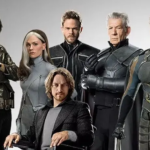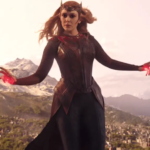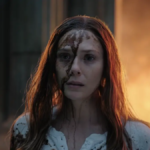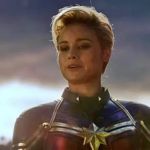In the world of Marvel, even the most unexpected topics become the center of fan discussions. One such topic is the personal life of Captain America, aka Steve Rogers. This debate, affectionately termed the “Captain America Virginity Theory,” reached new heights thanks to Marvel’s She-Hulk: Attorney at Law. The lighthearted speculation that began among fans was brought to life in She-Hulk, sparking excitement with Jennifer Walters’ (Tatiana Maslany) musings on whether Steve Rogers ever had time for romance in his heroic life.
Interestingly, the question didn’t start with fans or even Marvel writers—it traces back to a conversation with Captain America actor Chris Evans himself. In 2014, during Avengers: Age of Ultron, Evans hinted at Steve Rogers’ romantic experiences, planting the seeds for what would later be confirmed in She-Hulk.

She-Hulk and the Virginity Debate: A Fun Fan Conundrum
Marvel fans had long been intrigued by Steve Rogers’ personal life, considering his all-American image and dedication to duty. The scene from She-Hulk begins innocently enough, with Jennifer Walters making a case about Rogers’ history. Walters dives into an evidence-based approach that resembles a lawyer’s argument, humorously surmising that, as Captain America, he was simply too busy saving the world to focus on dating.
“Steve Rogers did so much for his country, and he never got to experience sex,” Walters laments, embodying fans’ curiosity.
This playful speculation reaches a satisfying answer when Bruce Banner reveals, “Steve Rogers is not a virgin. He lost his virginity to a girl in 1943 on the USO tour.” The moment provides a humorous resolution, showing Marvel’s knack for blending fan theories with in-universe canon.

The Origin of the Theory: Chris Evans’ Reflection on Cap’s Life
Long before She-Hulk, Chris Evans addressed Rogers’ complex personal journey in an interview. Known for his dedication to duty, Steve often put his personal desires on hold for the sake of others. Evans himself once joked about the idea that Captain America might still be a virgin, saying, “Cap puts what he wants last… It’s funny when you think about it. He’s probably a virgin.”
In this discussion, Evans even mentioned the possibility that Rogers may have had a fleeting encounter during his USO tour. “He was on tour,” Evans reflected, hinting that it might have been a transformative experience for Cap. By 2022, this offhand comment resurfaced in She-Hulk, creating a full-circle moment that links Evans’ insight to Marvel’s broader narrative.
Why Fans Care About Captain America’s Personal Life
Marvel has expertly blurred the line between fan curiosity and storytelling, with characters like She-Hulk embodying popular fan theories. The humor-laden banter in She-Hulk brought fans’ own questions to life, with the character of Jennifer Walters serving as a kind of proxy for Marvel enthusiasts.
It’s a testament to Marvel’s character development and storytelling that even a superhero’s romantic life can become a topic of widespread discussion. Steve Rogers, who was introduced as an “old-fashioned guy” from the 1940s, resonates with audiences who see him as both a hero and a symbol of unyielding virtue. This contrast between his public and private lives makes him an endearing and relatable character.

Marvel’s Playful Nod to Fan Theories
Marvel’s recent shows have mastered the art of self-aware storytelling, merging popular fan theories with character dialogues and plot points. She-Hulk is particularly adept at breaking the fourth wall, making fans feel like they’re part of the story. By confirming the Captain America theory, Marvel creates a unique connection with its audience, acknowledging their impact on the story while keeping the tone light-hearted and engaging.
Related Reading: Check out this in-depth analysis from Vanity Fair, which explores how Marvel uses fan theories to enrich its narratives.
The Evolution of Captain America’s Relationships
Beyond the She-Hulk confirmation, Chris Evans’ Captain America has had significant relationships throughout the Marvel Cinematic Universe. His loyalty to his friends like Bucky Barnes (Sebastian Stan) and his love interest, Peggy Carter (Hayley Atwell), highlights his emotional complexity. Each connection explores a different facet of his life, further deepening the fan’s investment in Steve Rogers’ journey from a young recruit to the hero we see today.
Marvel’s attention to detail allows them to add depth to characters, building a foundation that inspires debate and intrigue even after their stories have concluded. Evans himself noted this in past interviews, reflecting that “Cap puts what he wants last,” which explains why fans were invested in his personal life—it represented the quieter sacrifices he made as a hero.

Final Thoughts: She-Hulk Brings a Marvel Mystery to Life
The playful reveal about Captain America’s past underscores the way Marvel acknowledges and embraces fan conversations. By addressing a question fans have speculated about for years, She-Hulk provides both humor and closure, reminding audiences of the MCU’s ongoing engagement with its dedicated fanbase.
In the end, the “Captain America Virginity Theory” has been put to rest, but the fascination with Marvel’s heroes and their lives will undoubtedly fuel future theories and stories. Whether it’s Steve Rogers or the next generation of Marvel icons, fans’ curiosity and passion for these characters will continue to shape and inspire the MCU’s storytelling.
Further Reading: For more insights into Chris Evans’ take on Captain America and his role in the Marvel Cinematic Universe, read this article on Screen Rant.





